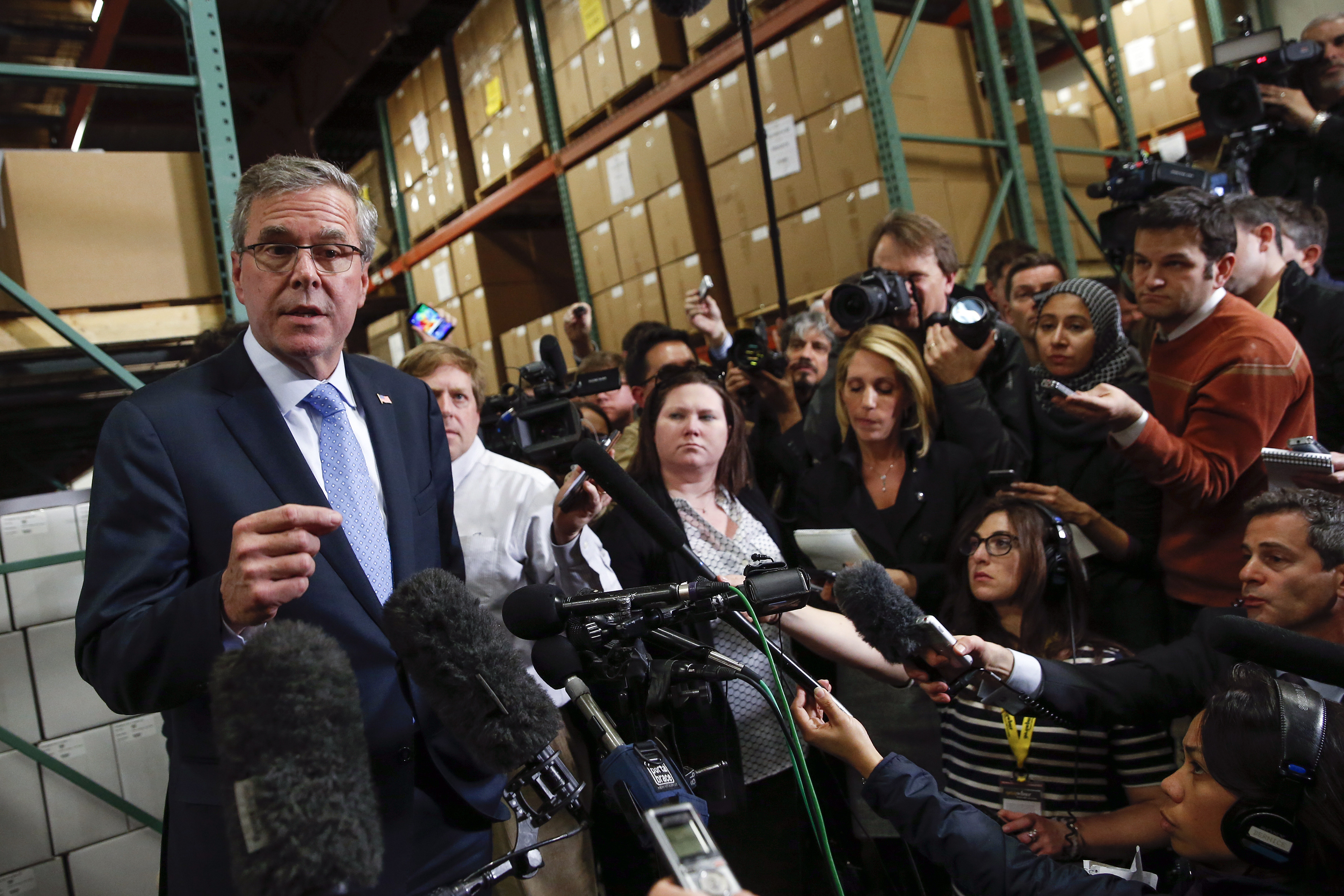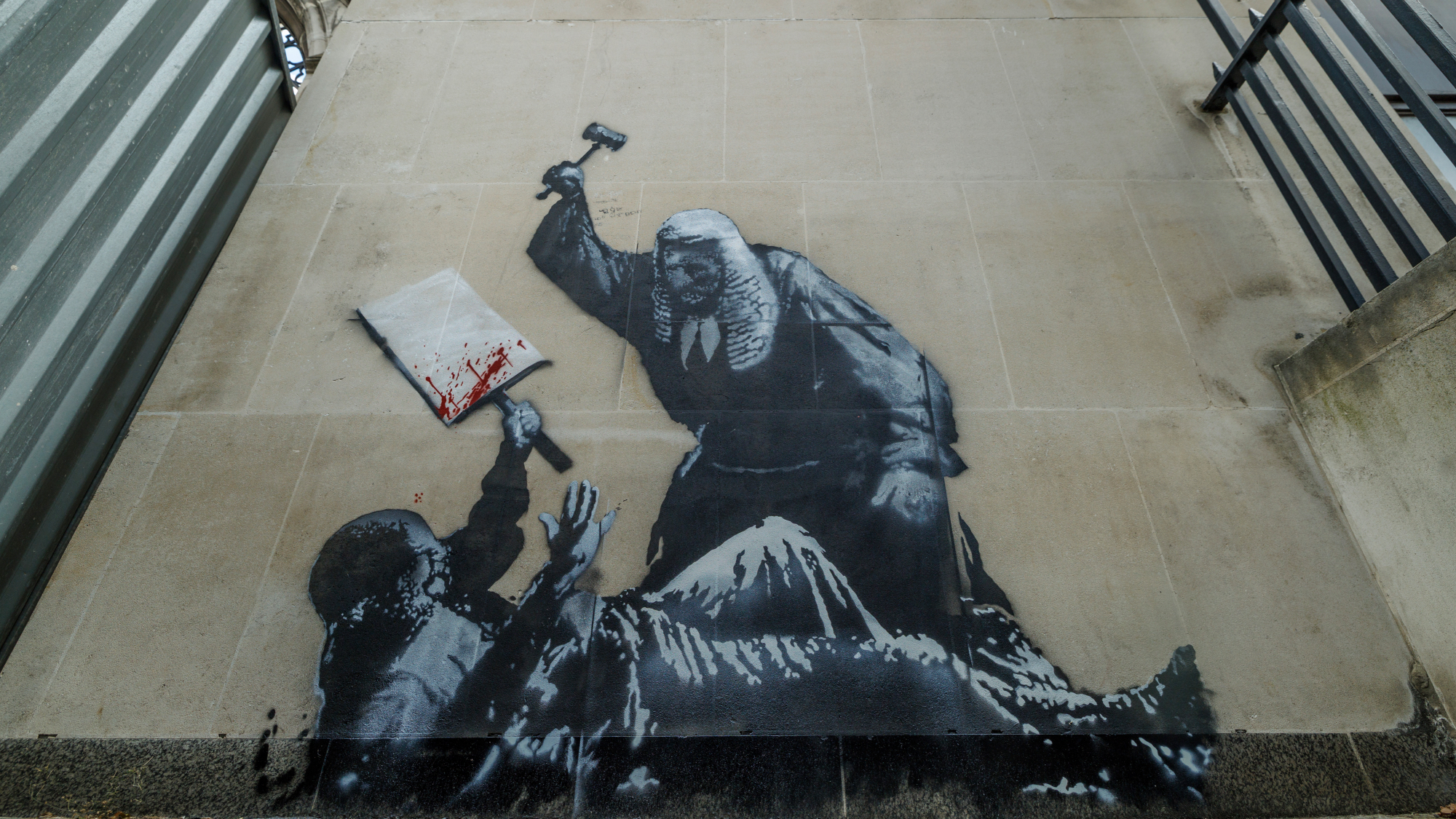The GOP still hasn't learned the right lessons of the Iraq debacle
The kerfuffle over Jeb Bush's Iraq confusion proves it


The 2016 Republican presidential field is finding religion on the Iraq war.
Yes, the 2003 invasion still has its defenders among some would-be commanders-in-chief. But many 2016 GOPers are increasingly saying that in hindsight they wouldn't have done it.
Allowing that George W. Bush "made the best decision he could at the time," Chris Christie said, "I don't think you can honestly say that if we knew then that there was no [weapons of mass destruction], that the country should have gone to war."
The Week
Escape your echo chamber. Get the facts behind the news, plus analysis from multiple perspectives.

Sign up for The Week's Free Newsletters
From our morning news briefing to a weekly Good News Newsletter, get the best of The Week delivered directly to your inbox.
From our morning news briefing to a weekly Good News Newsletter, get the best of The Week delivered directly to your inbox.
"Of course not," Ted Cruz said in response to whether he would have made the decision to invade Iraq knowing what we know now. Without weapons of mass destruction, the Texas senator said, "there's no way we would have gone to war with Iraq and we know that now in hindsight."
Marco Rubio, a darling of GOP hawks, was perhaps the most emphatic. "Not only would I not have been in favor of it, President [George W.] Bush wouldn't have been in favor of it and he said so," Rubio declared on the same day he laid out his "Rubio doctrine" emphasizing the projection of American power.
This avalanche of Iraq war second-guessing came in response to Jeb Bush appearing to waffle on the centerpiece of his brother's foreign policy. Asked by Fox News' Megyn Kelly if, in retrospect, he would have gone to war, the former Florida governor initially answered in the affirmative. He later said that he misinterpreted the question as being about what he would have done based on the "faulty" WMD intelligence.
"Yeah, I don't know what that decision would've been," Bush told Sean Hannity. "That's a hypothetical but the simple fact was mistakes were made, as they always are in life and foreign policy."
A free daily email with the biggest news stories of the day – and the best features from TheWeek.com
But here's the thing: For all the criticism of Bush this week, his original answer — that of course he would have invaded Iraq, and so would most lawmakers, including Hillary Clinton —was more honest than the GOP cares to admit. He was right. Most of the Republican presidential candidates would have invaded Iraq. Despite protestations to the contrary, few of them have truly learned the lessons of the war.
Rubio has explicitly defended the Iraq war in the past. "The world is a better place because Saddam Hussein is not in Iraq," he said in March. Running for Senate in 2010, he declared "that the world is a better and safer place because Saddam Hussein no longer is in charge of that country."
You can parse these statements — one in response to a hypothetical, the other a commentary on what actually happened — in a way that avoids contradiction. But if Rubio views the Iraq war as a mistake, it is only in the sense of the old Sheryl Crow song "My Favorite Mistake."
Rubio has outlined a foreign policy that promises to "use American power" and "spread economic and political freedom." The supporters of the Iraq war would have described their foreign policy in a similar fashion.
This is not to single out Rubio. Few of the Republican candidates wish to exercise caution in dealing with Iran or ISIS based on what unfolded in Iraq, even though both were beneficiaries of the power vacuum the war created. Even today, the true conventional wisdom in the GOP seems to be that the only mistakes that were made in Iraq were invading with too few troops and withdrawing too soon.
This is not a purely Republican phenomenon. Hillary Clinton, the Democratic frontrunner, is the only formally declared candidate who actually voted for the Iraq war. It cost her the party's nomination in 2008. Yet she still pushed for regime change in Libya with disastrous results, as if the only mistake made in Iraq was putting boots on the ground.
Rand Paul could make a coherent case against Bush-Clinton wars, Cruz a more selective one. But who else in the Republican field? The Iraq war questions these candidates are getting aren't really about what they would have done 12 years ago, but what kind of foreign policy they'd pursue right now.
Most Republicans this side of Lindsey Graham realize that it would be a political loser to offer an unqualified defense of the Iraq war in 2016. But how many of them wouldn't launch a preventive war of choice again, in Iraq or elsewhere? If the answer is not many, it could help the Democrat who voted to invade Iraq win the White House.
W. James Antle III is the politics editor of the Washington Examiner, the former editor of The American Conservative, and author of Devouring Freedom: Can Big Government Ever Be Stopped?.
-
 Bari Weiss’ ‘60 Minutes’ scandal is about more than one report
Bari Weiss’ ‘60 Minutes’ scandal is about more than one reportIN THE SPOTLIGHT By blocking an approved segment on a controversial prison holding US deportees in El Salvador, the editor-in-chief of CBS News has become the main story
-
 Has Zohran Mamdani shown the Democrats how to win again?
Has Zohran Mamdani shown the Democrats how to win again?Today’s Big Question New York City mayoral election touted as victory for left-wing populists but moderate centrist wins elsewhere present more complex path for Democratic Party
-
 Millions turn out for anti-Trump ‘No Kings’ rallies
Millions turn out for anti-Trump ‘No Kings’ ralliesSpeed Read An estimated 7 million people participated, 2 million more than at the first ‘No Kings’ protest in June
-
 Ghislaine Maxwell: angling for a Trump pardon
Ghislaine Maxwell: angling for a Trump pardonTalking Point Convicted sex trafficker's testimony could shed new light on president's links to Jeffrey Epstein
-
 The last words and final moments of 40 presidents
The last words and final moments of 40 presidentsThe Explainer Some are eloquent quotes worthy of the holders of the highest office in the nation, and others... aren't
-
 The JFK files: the truth at last?
The JFK files: the truth at last?In The Spotlight More than 64,000 previously classified documents relating the 1963 assassination of John F. Kennedy have been released by the Trump administration
-
 'Seriously, not literally': how should the world take Donald Trump?
'Seriously, not literally': how should the world take Donald Trump?Today's big question White House rhetoric and reality look likely to become increasingly blurred
-
 Will Trump's 'madman' strategy pay off?
Will Trump's 'madman' strategy pay off?Today's Big Question Incoming US president likes to seem unpredictable but, this time round, world leaders could be wise to his playbook



